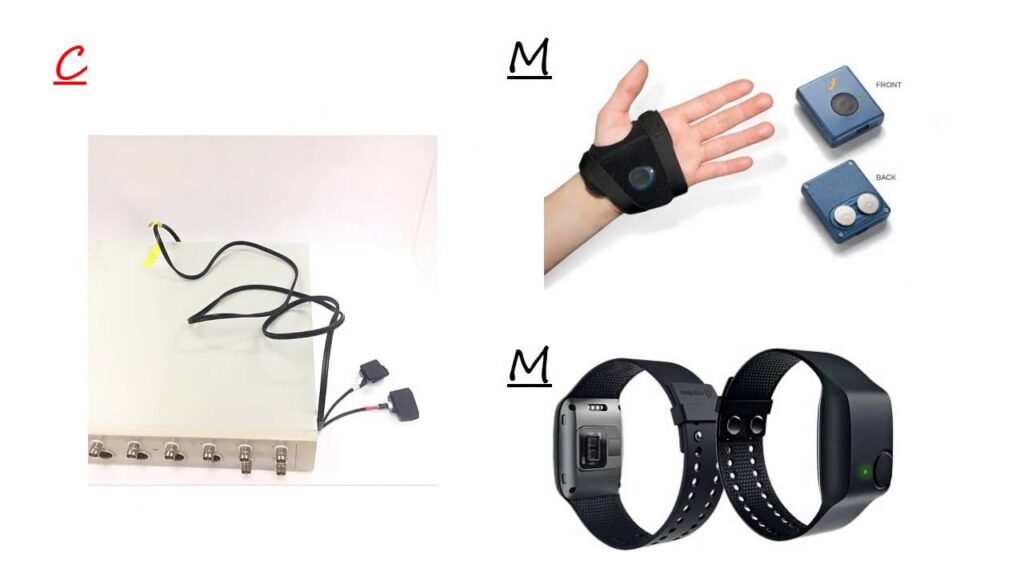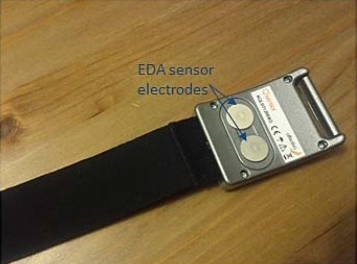In the ever-evolving landscape of wearable technology, Electrodermal Activity (EDA) sensors have emerged as a revolutionary tool for gaining insights into emotional well-being. This comprehensive guide explores the origins, functionalities, and transformative impact of EDA sensors, unveiling how they contribute to a deeper understanding of emotional states.

The Evolution of Wearable Biometrics
Beyond the Basics
Embark on a journey through the evolution of wearable biometrics, tracing the shift from basic health metrics to the integration of emotional well-being indicators. Explore the motivations behind the development of EDA sensors and their potential to redefine personal health monitoring.
The Rise of Emotional Well-being Tech
Delve into the rise of emotional well-being technologies, highlighting the intersection of psychology, physiology, and technology. Uncover the motivations driving the adoption of EDA sensors as a tool for self-awareness and mental health management.
Understanding EDA Sensors
Electrodermal Activity Explained
Unravel the core principles of Electrodermal Activity, shedding light on the physiological changes in skin conductance that reflect emotional arousal. Discuss how EDA sensors measure these subtle responses to provide insights into stress, excitement, and relaxation.
Wearable Integration
Explore how EDA sensors are seamlessly integrated into wearable devices, such as smartwatches and fitness trackers. Discuss the miniaturization of sensor technology and its role in making emotional well-being monitoring accessible to a broader audience.
EDA Sensors in Action
Stress Management
Examine how EDA sensors contribute to stress management, providing real-time data on emotional arousal levels. Discuss the potential for users to proactively manage stress by recognizing patterns and triggers through EDA insights.
Biofeedback for Mental Health
Highlight the role of EDA sensors in biofeedback for mental health, discussing how users can engage in activities to modulate their emotional responses based on EDA feedback. Explore the implications for mental health interventions.
Implementation Across Devices
Wearables and Beyond
Discuss the widespread implementation of EDA sensors across various wearable devices, from smartwatches to fitness trackers and beyond. Explore how these sensors enhance the overall capabilities of wearables in addressing holistic well-being.
Challenges and Future Developments
Accuracy and Calibration
Acknowledge challenges related to the accuracy and calibration of EDA sensors, particularly in capturing subtle emotional changes. Discuss how advancements in sensor technology and algorithms address these challenges for improved precision.
Ethical Use and Privacy
Discuss considerations around the ethical use of EDA data and user privacy. Explore how manufacturers and developers implement safeguards to ensure responsible data handling and protection.
Future Innovations
Provide insights into the future of EDA sensors, exploring potential advancements, new applications, and their role in shaping the next generation of emotional well-being technologies. Discuss how these innovations envision a more emotionally intelligent and responsive world.
Of the devices that contain this technology
Conclusion
In conclusion, EDA sensors represent a significant leap in wearable technology, providing a window into the realm of emotional well-being. From stress management to mental health biofeedback, these sensors empower individuals to understand and regulate their emotional states. As we anticipate the future, the ongoing innovations in EDA sensor technology promise a world where emotional well-being is not only monitored but actively nurtured, fostering a holistic approach to health and self-awareness.

Leave a Reply